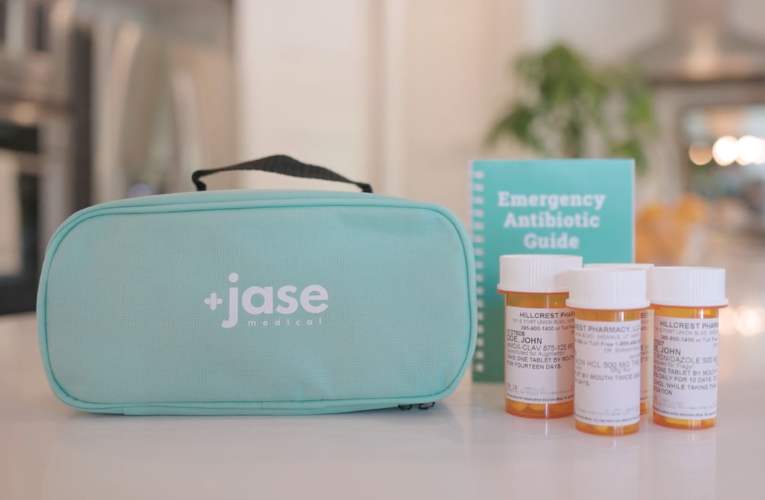If you’re considering Jase, chances are you’ve paused and thought, “This makes sense, but I still have a few questions.”You’re not alone. Here are the most common ones we hear, answered plainly. Is this really doctor-prescribed? Yes. Every Jase order is reviewed by a...
How Long Do My Meds Last? A Look at Metronidazole

Metronidazole is in a class of medications called nitroimidazole antimicrobials. It was initially developed at Rhone-Poulenc labs in France in 1959 to treat Trichomonas vaginalis, a parasitic infection. In 1962, it was discovered to be effective against both Trichomonas vaginalis and bacterial gingivitis (bacteria). By the 1970s metronidazole was used for treatment of infections caused by gram-negative anaerobes such as bacteroides or gram-positive anaerobes such as clostridia. It is now widely used as a prophylaxis following bowel surgery to prevent infection. Metronidazole does not treat viruses or yeast infections- only bacterial and parasitic infections.

How long does Metronidazole remain potent?
When stored in a cool, dry, and dark area away from sunlight and capped, metronidazole can retain much of its potency well past expiration date. Exposure to UV light seems to degrade metronidazole more than extreme heat or cold.
Expiration dates reflect the time during which the product is expected to remain stable, or retain its identity, strength, quality, and purity, when it is properly stored according to its labeled storage conditions. Metronidazole can be used up to a year past expiration date; however potency is affected. Contact your care provider before starting metronidazole if using past expiration date for further guidance. Metronidazole does not become toxic, just less potent.
Metronidazole is listed in the World Health Organization Model List of Essential Medications for the newly released 2023 edition:
FIRST CHOICE (From WHO 2023 list)
- Difficile infection
- Complicated intraabdominal infections (mild to moderate)
- Complicated intrabdominal infections (severe)
- Necrotizing fasciitis
- Surgical prophylaxis
- Trichomoniasis
SECOND CHOICE (From WHO 2023 list)
- Complicated intraabdominal infections (mild to moderate)
Other uses include
- Bacterial vaginosis
- Tetanus infection if no other better options are present.
How to take
Take metronidazole with food to avoid stomach upset. DO NOT consume alcohol or products containing propylene glycol for 3 days after last metronidazole dose. Do NOT take if you have taken disulfiram (Antabuse) within past 2 weeks.
Side Effects
Mild side effects include (can mostly be alleviated by taking with food)
- Vomiting nausea, diarrhea
- Stomach cramps
- Constipation
- Loss of appetite
- Headache
- Metallic taste in mouth
- Mouth or tongue irritation
Discontinue and contact your primary care provider if you experience the following
- Numbness, pain, burning, or tingling in your hands or feet
- Seizures
- Hives, peeling or blistering of skin
- Problems with coordination,
- Difficulty speaking, confusion, or agitation
- Signs of infection such as sore throat, fever, or stuffy nose
- Tarry stools
Consult with your care provider before taking if you are taking any of the following:
- Let your care provider know if you are taking any of the following: anticoagulants (‘blood thinners’) such as warfarin (Coumadin, Jantoven), busulfan (Busulfex, Myleran), cimetidine (Tagamet HB), lithium (Lithobid), phenobarbital, and phenytoin (Dilantin, Phenytek)
Make your care provider aware if you currently have (or history of)
- Pregnant or breastfeeding. Metronidazole has a pregnancy category B rating -Animal reproduction studies have failed to demonstrate a risk to the fetus and there are no adequate and well-controlled studies in pregnant women. A substantial amount of metronidazole does pass into breast milk and can be passed to infant. There is some evidence that metronidazole can cause diarrhea and thrush in breastfed infants,, but studies are inconclusive. If metronidazole must be given, avoid breastfeeding foe 12-24 hours after dose.
- Allergy to metronidazole, secnidazole (Solosec), tinidazole (Tindamax), any other medications, or any of the ingredients in metronidazole preparations.
- Have history of Crohn’s disease, or blood, kidney, or liver disease.
- Brooke Lounsbury, RN
Medical Content Writer
Lifesaving Medications
Recent Posts
Keeping you informed and safe.
FAQ: Our most commonly asked questions about Jase
Medical Readiness: What Really Kills First
When Disaster Strikes, It’s Not Hunger or Thirst That Takes the First Lives In every disaster zone, from hurricanes in the Caribbean to war zones in Ukraine, the pattern is the same. People worry about food and water, but it’s infection that kills first. A small wound...
Exploring Dr. William Makis’ Hybrid Orthomolecular Cancer Protocol: Focus on Ivermectin and Mebendazole/Fenbendazole
Exploring Dr. William Makis’ Hybrid Orthomolecular Cancer Protocol: Focus on Ivermectin and Mebendazole/Fenbendazole *Disclaimer: This article is for educational purposes and does not constitute medical advice. Always seek professional guidance.* In the evolving...





